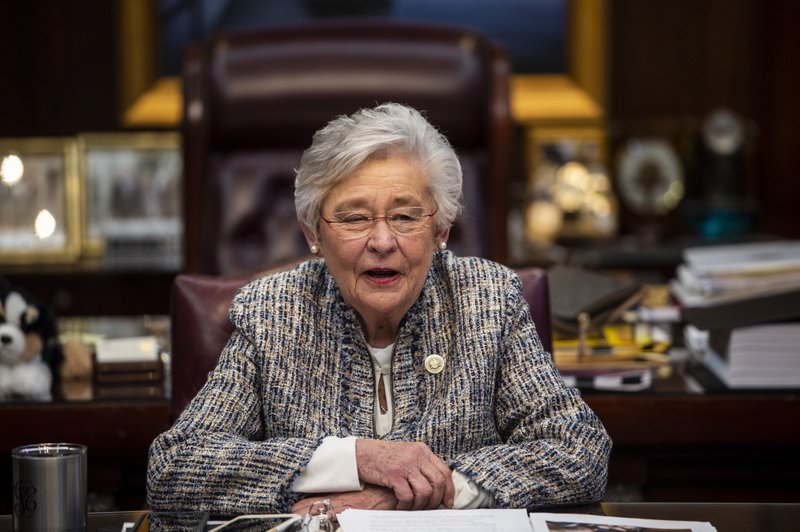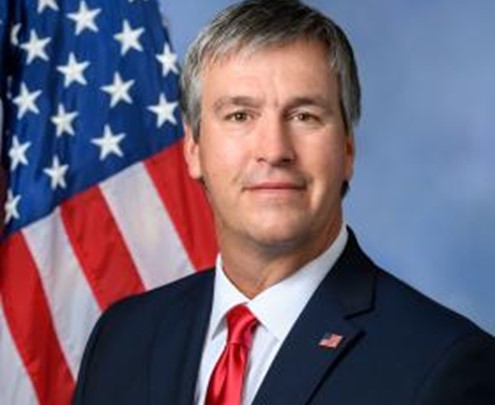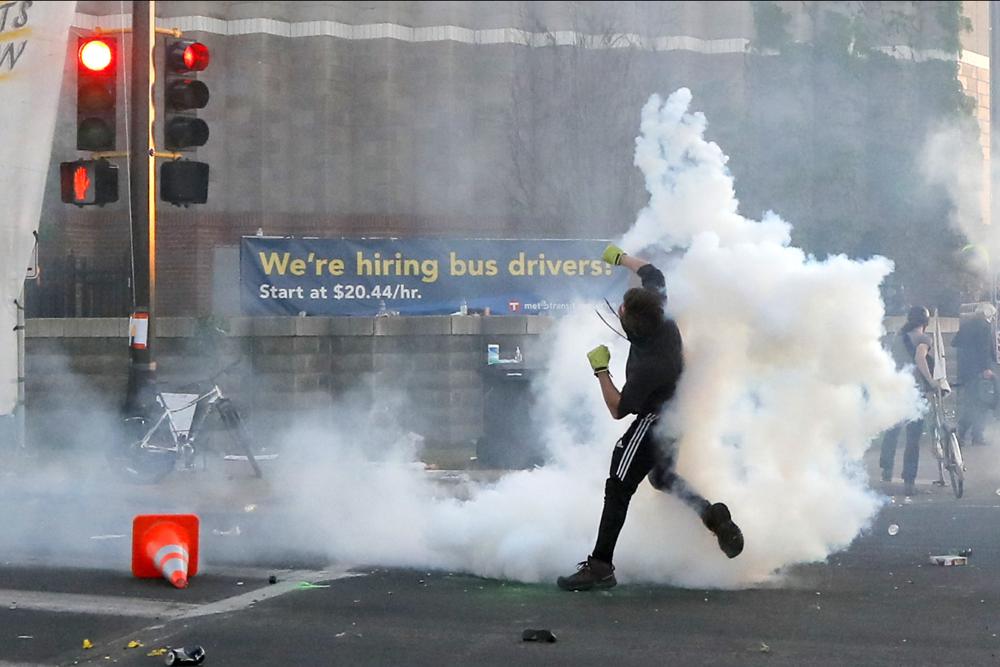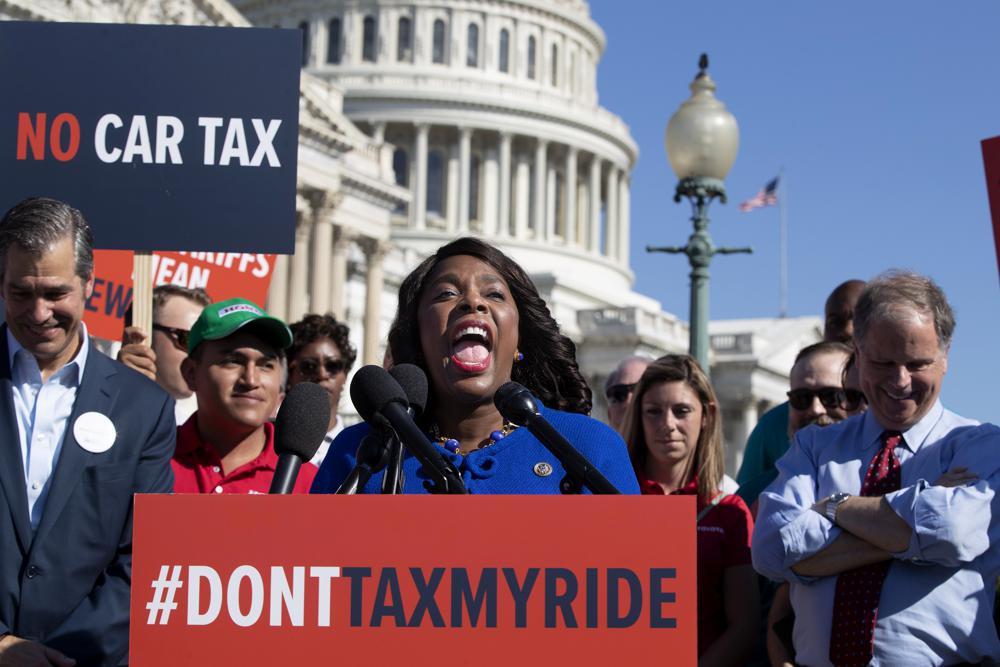Freda Bacon: Another bite at the Amazon apple

After two full years of economic turmoil caused by the Covid-19 pandemic, employers throughout the country continue to face headwinds. In some cases, those headwinds are caused by a federal government that should be helping employers, not hindering them. Take, for example, the National Labor Relations Board (NLRB), a little-known agency that helps employees decide whether they want to have a labor union represent them in the workplace. The process for that can be rather complicated, but when you boil it down, employees usually hold a secret ballot election to decide. If a majority of employees vote in favor of the union, it becomes their representative with the employer, and if a majority vote against the union, it does not. That’s the way it’s supposed to work, at least. It is not much of a secret that the Retail, Wholesale and Department Store Union (RWDSU) has been attempting to be the collective bargaining representative of Amazon’s Bessemer, Ala., employees, but the problem for the RWSDU is the fact that the employees at that facility already had an election last April and voted against having the union represent them. In fact, it wasn’t even close: the RWDSU lost by a vote of 738 votes for the union versus 1,798 votes against it. But somehow, the NLRB won’t accept the result. Instead, they’ve decided to order yet another election based on a series of spurious complaints filed by the union that lost. This is disruptive both for workers and the company. Workers have the right to join a union. But when they decline to do so, government’s job shouldn’t be to disregard that decision. If workers at Bessemer say “no” again, let’s hope the NLRB will listen this time. Freda Bacon is the Chair of the Labor and Employment Committee of Business Council of Alabama.
Kay Ivey applauds decision to drop mask mandates in Alabama schools

Gov. Kay Ivey has released a statement in light of schools dropping their remaining mask mandates. Ivey has drawn criticism on the issue, with many Alabamians arguing that she hasn’t been vocal enough about dropping mask mandates in schools sooner. In January, when the positivity rate for coronavirus tests exceeded 35% statewide, some state school systems returned to online learning or implemented mask restrictions to avoid classroom outbreaks. With the current omicron outbreak waning, schools are reversing mask mandates. “I applaud the Alabama schools and universities who have made the decision to end mask mandates. Given the health data we’ve seen in Alabama and across the country, I encourage all schools to continue removing these mandates — we don’t need them in Alabama,” Ivey stated. “As a former teacher, I know well that parents should be in charge of making the best decisions for their kids, not government. That’s why here in Alabama, we don’t have covid state government mandates — we sued President Biden over his mandates, and we won. I believe in the good people of our state and will always protect their freedoms.”
Lionel Richie to be featured in Alabama’s voter ID campaign ad

Multi-platinum singer and songwriter Lionel Richie has agreed to participate in the Alabama 2022 photo voter ID and voter registration initiative. The Tuskegee native will be featured in addition to former President Donald Trump. Every year, the Secretary of State’s Office conducts a statewide multimedia campaign to ensure all registered voters have a photo ID, promote voter registration, and encourage voter participation. The campaign consists of statewide television and radio ads, as well as digital advertisements. In the ad, Ritchie states, “Hi, I’m Lionel Ritchie, and I have traveled all over the world, but I consider Tuskegee, Alabama as my home sweet home. I have such a pride in this state, and I know that there is something I need to tell you that is of great importance: Vote. Register to vote and get your voter ID today. It really is easy…easy like Sunday morning.” To receive a free Alabama photo voter ID card, applicants must complete the application and meet the following requirements: they must provide a photo ID document or a non-photo identity document containing their full legal name and date of birth, they must be a registered voter in Alabama, and they cannot have any valid form of photo ID that is accepted at the polls. To register to vote in Alabama, you must be a U.S. citizen and an Alabama resident. You must be 18 years or older on or by Election Day, and cannot be convicted of a disqualifying felony nor declared mentally incompetent. The next Primary Election date is May 24, 2022, and the deadline to register before the 2022 Primary Election is May 9, 2022.
Barry Moore signs letter urging Joe Biden to hold China accountable

Rep. Barry Moore joined 57 other members of Congress in signing a letter to President Joe Biden urging him to hold the Chinese Communist Party accountable for neglecting their commitments made during the Trump administration to make the U.S. – China agricultural trade relationship more balanced and reciprocal. Two years ago, the United States and China signed a two-year trade deal that required China to make reforms to its trade regime and import $73.9 billion of U.S. agricultural products in 2020 and 2021 combined. China failed to live up to that commitment by $16 billion. The members urged President Biden, U.S. Secretary Thomas J. Vilsack, and U.S. Trade Representative Katherine Tai to rectify the situation and stand for U.S. agricultural producers. “President Biden’s weakness on the global stage in Afghanistan, Ukraine and beyond has sent the message that other nations can walk all over us, so this administration must take immediate actions to stand up for America and ensure nations like China honor their commitments,” said Moore in a press release. “American farmers and ranchers produce the highest quality crops, livestock, poultry, and dairy products in the world, and we cannot continue to allow China to target them without consequences. The ability of U.S. agriculture to participate in a worldwide marketplace is essential to our markets at home and the ability to make a profit, and I am proud to join my colleagues to demand immediate action from the President.” “President Biden either needs to force China to comply with their end of the agreement or punish them for failing to do so. That’s how deals work,” said Rep. Tracey Mann. “This administration must address the full suite of issues in a comprehensive and holistic manner and hold the Chinese Communist Party accountable for treating America and its farmers, ranchers, and agricultural producers like a doormat. My colleagues and I are calling for immediate action.” “America must enforce our agreements,” said Rep. August Pfluger. “I am proud to join my colleagues in calling on President Biden to hold China accountable for their Phase One commitments. This administration must take immediate action and stand up for the agricultural producers that feed and clothe our nation. It’s time to put the United States first and stand up to our adversaries.”
Alabama House delays vote on riot legislation

The Alabama House of Representatives on Wednesday night delayed a vote on legislation that would create a new definition of riot and increase the penalties for participating in one. Republican Rep. Allen Treadaway, noting the late hour and the number of lawmakers who wanted to speak on the bill, asked to carry the bill over to the call of the chair. It was not immediately clear when it would be back for a vote. The measure is expected to spark a filibuster by House Democrats. Republicans supporting the bill said it is needed to combat violent protests that cause injuries and property damage. But critics argued it would have a chilling effect on protests and that the definition of riot could allow an officer to make arrests based on presumptions, and prejudices, about the people involved. The bill, as amended by the House Judiciary Committee, defines a riot as, “the assemblage of five or more persons engaging in conduct which creates an immediate danger of and/or results in damage to property or injury to persons.” Attending such a gathering after an order from police to disperse would be a misdemeanor punishable by a mandatory 30 days in jail. Treadaway, a retired Birmingham assistant police chief, proposed the bill after a summer protest in Birmingham in the wake of George Floyd’s death in Minneapolis. The protest turned destructive. “Buildings were burning. Stores were being looted,” Treadaway, a Republican from Morris, told the committee last week. During the committee vote last week, several lawmakers who are Black expressed concern that the bill’s definition of a riot is subjective. Rep. Merika Coleman said her 21-year-old son, a college student and football player, is “one of the sweetest people you will ever meet.” But she said some people make assumptions when they see a group of young Black men. “They make an assumption about who they are, and they make an assumption about what they are about to do,” said Coleman, a Democrat from Pleasant Grove. A federal judge blocked a similar Florida statute from taking effect. The American Civil Liberties Union of Alabama has said it would seek a similar injunction in that state if the bill were to become law. Republished with the permission of the Associated Press.
Gulf Coast latest battleground for Amtrak, train companies

The Gulf Coast has become the latest flashpoint in a clash between Amtrak — and its plans to expand passenger rail service nationwide — and freight train operators that share the rails. A court hearing this week in Mobile, Alabama, highlights the differences between Amtrak and the freight operators, Al.com reported. The two-day public hearing explored the possibility of restarting a state-supported passenger rail route between Mobile and New Orleans. The train would make four stops in coastal Mississippi. Freight operators CSX and Atlanta-based Norfolk Southern, along with the Alabama State Port Authority, oppose the plans. “This case is far more than … New Orleans to Mobile,” said Jim Foote, president and CEO of Jacksonville, Florida-based CSX. “It’s about a new national agenda and Amtrak’s desire to change the law and create a new road map to impose passenger service without working with the host carriers or local communities to first add capacity.” Part of what is at stake is whether Amtrak and its state partners will be able to carry out the direction of the Biden Administration and Congress to significantly expand Amtrak service on the U.S. rail network, Amtrak CEO Stephen Gardner said. This week’s hearing was hosted by the U.S. Surface Transportation Board. The federal regulatory agency is overseeing a legal proceeding to determine whether or how Amtrak can provide passenger rail service along the Gulf Coast for the first time since 2005. Republished with the permission of the Associated Press.
Across the bridge: Terri Sewell carries torch for voting bill

Growing up in the civil rights epicenter of Selma, Alabama, Terri Sewell heard all the stories. About the police violence during the “Bloody Sunday” march at the Edmund Pettus Bridge. About the beating of the young man who went on to become Rep. John Lewis. About the blood that was shed and the lives undone to ensure Black people would finally have the right to vote when the Voting Rights Act of 1965 became law. As she set out for the Ivy League, law school, and eventually Congress, Sewell focused on the civil rights battles to come. Income inequality, she thought, would be her work for the new era. Then the Supreme Court gutted the Voting Rights Act. And the fight of her parents’ and teachers’ and neighbors’ generation suddenly became her own. “Never in a million years did I think that I — 57 years later — would have the cause for which John Lewis and those foot soldiers marched become my cause, too,” Sewell said in an interview. “We fought that. They were bludgeoned on a bridge for the right to vote — the equal right of every American to vote,” she said. “But so it is.” The Democratic congresswoman’s journey from rural Selma to the halls of Congress offers a vivid portrait of the nation’s progress toward ending voter discrimination, but also of accumulating setbacks in the long campaign for voting rights. Her work trying to restore the Voting Rights Act is testing the resolve of a nation that celebrates its civil rights heroes of the past but cannot muster support in Congress to update what has historically been a popular, bipartisan law. Since the Supreme Court in 2013 struck down part of the law, many states free from federal oversight have been imposing new rules, changing polling times, and even installing limits on handing out water for those waiting in line — changes that voter advocates say could make it more difficult to cast ballots in this year’s elections. Wade Henderson, interim president of the Leadership Conference on Civil and Human Rights, said of Sewell: “She’s emerged as someone who is uniquely qualified to play the role that history seems to have given her.” Elected in 2010 as the first Black congresswoman from Alabama, Sewell arrived at the Capitol about as backbench as it gets, among a new handful of Democrats in a Republican tea party wave. That was a tough start for the first Black valedictorian at Selma High School and someone who can boast of attending college with both Obamas, Michelle Obama at Princeton, and the future president at Harvard Law. Coming from a long line of “preachers and teachers,” she confides she really wanted to be an actor but recalled her late father’s admonitions: “We’re not eating cornflakes for dinner for you to be majoring in theater at Princeton University.” Her family’s church in Selma was the historic Brown Chapel AME Church, the starting point for the historic voting rights marches and the place that Lewis — the future congressman, who died in 2020 — and others would return years later to commemorate “Bloody Sunday.” Her mother was the city’s first Black city councilwoman. “For me, growing up in Selma, Alabama, I didn’t have to read in the history books about these amazing foot soldiers,” said Sewell, who is 57. Many of them were “ordinary Alabamians,” she said, and once the marches were over, and the voting rights bill became law, “They went on with their lives, and many of them were my neighbors and my church members.” In Congress, Sewell put her public finance law background to work trying to preserve the historic civil rights sites in her district, which stretches across the state’s Black Belt to her current home in Birmingham. One bill she steered into law awarded the Congressional Gold Medal to the four Black girls killed in the 1963 bombing at the city’s 16th Street Baptist Church. The region has been so underserved that when “Selma” the movie opened in 2014, her mom pointed out there was no movie theater open in town for a screening. Residential yard sewage remains a stubborn problem because of lagging public investment in wastewater systems. “We can’t just come to Selma and walk across that bridge and keep on walking,” she said ahead of next month’s anniversary of the marches. “It’s a city that is dying on the vine, a city that needs economic revitalization.” Two years after Sewell took office, the Supreme Court’s stunning decision to reject the Voting Rights Act’s “preclearance” formula governing state election changes thrust the congresswoman to the forefront alongside Lewis to try to salvage the law, which had been seen as among the most enduring achievements of the Civil Rights era. Since the court’s decision, every session of Congress, she has introduced legislation, now called the John R. Lewis Voting Advancement Act. It failed in the Senate in January, part of a broader bill halted by a Republican filibuster and two Democrats unwilling to change the rules for passage. For Sewell, it was a reminder of how the battle of the earlier civil rights generation has swiftly, intractably become her own. “That’s very much part of the experience of Black leaders,” said Sherrilyn Ifill, the president and director-counsel of the NAACP Legal Defense and Educational Fund. “If you are a Black person in leadership, and you care about and love your community, the circumstances in which Black people live in this country will compel you, sooner or later … to become a civil rights activist.” Alabama is again at the center of the nation’s voting rights debate. Shelby County, not far from Selma, brought the court case in which Chief Justice John Roberts writing for the conservative majority, argued, “Our country has changed in the past 50 years.” The Roberts court will hear another Alabama case, expected later this year. The state, where one in four voters is Black, is asking the high court to reject the creation of a second, mostly Black congressional seat, despite a lower court’s finding that having just
Alabama lawmakers approve pandemic-related tax exemption

Alabama lawmakers on Thursday approved legislation so families won’t have to pay state income tax on the monthly child tax credit payments they received under the federal pandemic relief package. The Alabama Senate and Alabama House of Representatives on Thursday approved identical versions of the bill. The measure now goes to Alabama Gov. Kay Ivey. The bills passed without a dissenting vote. Republican Rep. Jim Carns said Alabama, unlike many other states, did not have an automatic adjustment in its tax code that excluded the federal benefit from the calculation of taxable income. “Every state in the nation except Alabama and Louisiana had automatic systems in their revenue department to make this tax-free. Without us doing a statute, it would not be tax-free. So, this is fulfilling the intent of the (American Rescue Plan) funds that were sent to working families who had children at home,” said Carns, the sponsor of the bill in the Alabama House of Representatives. The American Rescue Plan Act increased the federal child tax credit that families can claim each year, and eligible families received six monthly deposits as a partial advance on the credit. Eligible families received $300 monthly for each child under 6 and $250 per child older than that. The approved legislation means the additional tax credits will not count against the federal deduction people use to lower their state income tax. “It was roughly $250 per month per child that was received by families. So now as they file their tax returns, they will be in a position to get a credit to exempt that from income,” Republican Sen. Dan Roberts said. Roberts, who sponsored the Senate version of the bill, estimated that the change would save families with two children about $200. People who have already filed their state income tax forms will have to file an amended return to claim their full federal deduction, Carns said. “Most folks have not filed yet,” Carns said. “Those few that have filed are going to have to come back and do a corrected tax filing.” Republished with the permission of the Associated Press.


